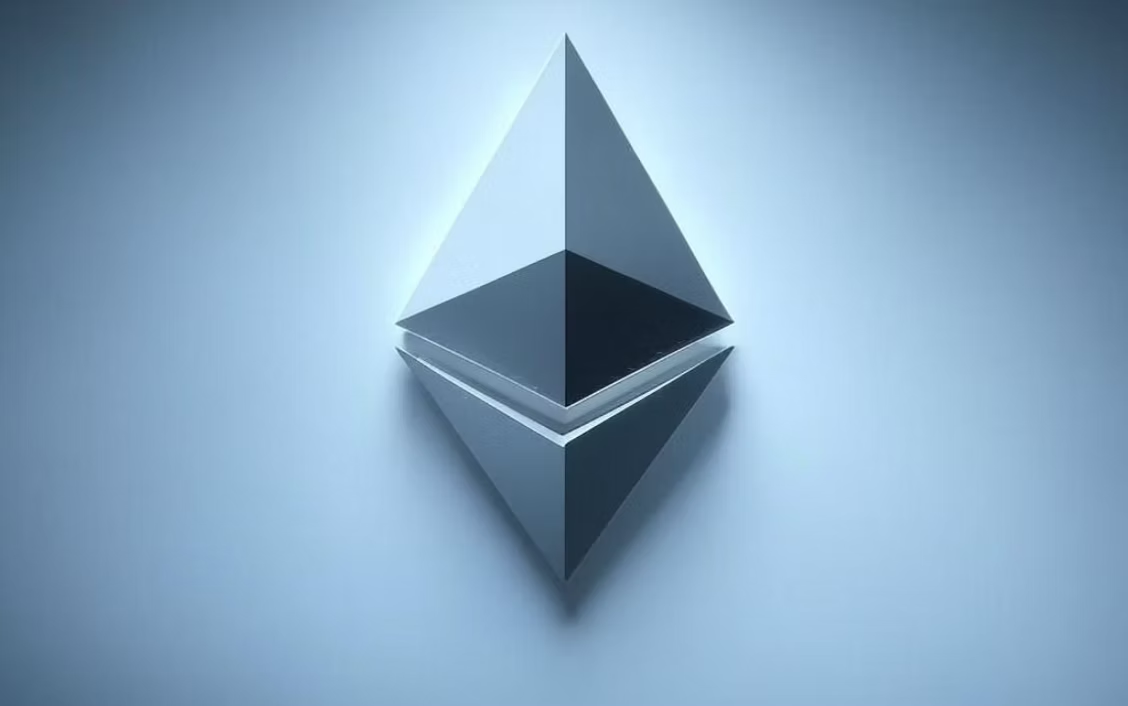Ethereum (ETH)
Ethereum is a decentralized open-source blockchain network powered by the Ether (ETH) token. It facilitates a wide array of activities such as transactions, staking for interest, managing non-fungible tokens (NFTs), trading cryptocurrencies, gaming, and social media interactions. Since its inception, Ethereum has grown into one of the most significant cryptocurrencies globally, second only to Bitcoin.
History of Ethereum
Early beginnings (2014-2015)

| Ticker | ETH |
| Category | Smart Contract Platform |
| Website | https://www.ethereum.org/ |
| @ethereum | |
| https://www.reddit.com/r/ethereum |
Vitalik Buterin introduced the concept of Ethereum in a whitepaper published in late 2013. Ethereum was officially announced in January 2014 at The North American Bitcoin Conference in Miami. The project gained significant attention and successfully raised over $18 million through a crowdfunding campaign by selling its native token, Ether. Although Ether was available for purchase in 2014, the Ethereum blockchain went live on July 30, 2015.
Further development (2016-2021)
In 2016, Ethereum faced a notable event involving the DAO (Decentralized Autonomous Organization), which was an Ethereum-based fund. A hack led to the loss of 3.6 million ETH, prompting a hard fork in the network. This resulted in two blockchains: Ethereum, as we know it today, and Ethereum Classic, the original chain.
The Enterprise Ethereum Alliance (EEA) was formed in 2017, bringing together innovators and companies to support Ethereum's growth. Notable updates over the years include Byzantium, Constantinople, and the Beacon Chain, which have introduced various improvements and paved the way for Ethereum's transition to a proof-of-stake consensus mechanism.
In 2021, Ethereum implemented the London upgrade, introducing Ethereum Improvement Proposal (EIP) 1559. This updated the estimation of transaction fees, making them more predictable and partially burning fees to reduce Ether's supply.
Ethereum's major upgrades and roadmap
The Merge
On September 15, 2022, Ethereum transitioned from a proof-of-work (PoW) to a proof-of-stake (PoS) consensus mechanism in an upgrade known as "The Merge." This transition significantly reduced Ethereum's energy consumption by approximately 99.95% and unified the two separate blockchains: the execution layer and the consensus layer (Beacon Chain).
Shapella upgrade
The Shapella upgrade went live on April 12, 2023. It included changes to both the execution layer (Shanghai) and the consensus layer (Capella). Key proposals in this upgrade improved various aspects of Ethereum, such as validator stake withdrawal (EIP-4895) and the introduction of smart accounts (ERC-4337).
Future upgrades
Ethereum's future roadmap includes several key upgrades:
- The Surge: Aims to enhance scalability through rollups and data-sharing, reducing the need for shard chains.
- The Scourge: Focuses on addressing censorship and centralization while managing miner extractable value (MEV) issues.
- The Verge: Introduces "Light Clients" and Verkle Trees to simplify block verification and reduce storage needs.
- The Purge: Plans to reduce hard disk requirements by introducing history expiration and a new syncing mechanism.
- The Splurge: Encompasses smaller upgrades necessary for maintaining and improving the Ethereum blockchain.
Key components of Ethereum
Accounts
Ethereum accounts come in two types: user-controlled accounts and smart contracts. Both can hold and transfer ETH, interact with smart contracts, and perform transactions.
Blocks and transactions
Blocks are collections of transactions, each linked to the previous block through a cryptographic hash. This ensures the integrity and order of the blockchain. Validators assemble and propagate new blocks, following the proof-of-stake protocol.
Gas and fees
Gas is the unit that measures computational effort for transactions on Ethereum, paid in Ether (ETH). Prices are denominated in gwei, a subunit of Ether. The base fee for transactions is burned, making fees more predictable.
Nodes and clients
Ethereum's network consists of distributed nodes running client software. These nodes verify blocks and transaction data. Post-Merge, Ethereum operates with execution and consensus clients working together to maintain network integrity.
Networks
Ethereum exists on various networks, including the Mainnet for real-value transactions and several testnets for development and testing. Layer 2 solutions extend Ethereum's capabilities by providing scalability and inheriting its security.
Token standards
Ethereum supports various token standards, including ERC-20 for fungible tokens and ERC-721 for non-fungible tokens. These standards define how tokens operate and interact with smart contracts on the Ethereum network.
Ethereum governance
Stakeholders
Ethereum's governance involves multiple stakeholders, including Ether holders, developers, node operators, miners/validators, and protocol developers. Each plays a role in proposing and implementing changes.
Process for introducing changes
Changes to Ethereum are proposed through Ethereum Improvement Proposals (EIPs) and undergo a process of community input, developer iteration, and network upgrade activation.
Ethereum timeline
Ethereum's development has been marked by numerous milestones, including:
- 2013: Whitepaper release
- 2014: Yellowpaper release and Ether sale
- 2015: Frontier launch
- 2016-2021: Various forks and upgrades, such as the DAO fork, Byzantium, and Constantinople
- 2022: The Merge
- 2024: Scheduled Dencun Upgrade
Ethereum's evolution continues to shape the digital landscape, maintaining its position as a leader in blockchain innovation.
